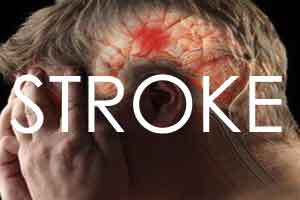- Home
- Editorial
- News
- Practice Guidelines
- Anesthesiology Guidelines
- Cancer Guidelines
- Cardiac Sciences Guidelines
- Critical Care Guidelines
- Dentistry Guidelines
- Dermatology Guidelines
- Diabetes and Endo Guidelines
- Diagnostics Guidelines
- ENT Guidelines
- Featured Practice Guidelines
- Gastroenterology Guidelines
- Geriatrics Guidelines
- Medicine Guidelines
- Nephrology Guidelines
- Neurosciences Guidelines
- Obs and Gynae Guidelines
- Ophthalmology Guidelines
- Orthopaedics Guidelines
- Paediatrics Guidelines
- Psychiatry Guidelines
- Pulmonology Guidelines
- Radiology Guidelines
- Surgery Guidelines
- Urology Guidelines
Reduce Dosage of Alteplase while treating stroke: Study

In a finding that could change the way the most common form of stroke is treated globally, researchers have shown that modified dosage of a clot-busting drug can reduce risk of serious bleeding in the brain and improve survival rates.
Intravenous rtPA (or alteplase) is given to people suffering acute ischaemic stroke and works by breaking up clots blocking the flow of blood to the brain.
However, it can cause serious bleeding in the brain in around five per cent of cases, with many of these proving fatal.
Compared to standard dose (0.9mg/kg body weight), the lower dose (0.6mg/kg) of rtPA reduced rates of serious bleeding in the brain, known as intracerebral haemorrhage (ICH), by two thirds, showed the results of the trial of more than 3,000 patients in 100 hospitals worldwide.
"Most patients who have a major stroke want to know they will survive but without being seriously dependent on their family. We have shown this to be the case with the lower dose of the drug," said one of the researchers Tom Robinson, professor at University of Leicester in Britain.
The findings were published in the New England Journal of Medicine.
"At the moment you could have a stroke but end up dying from a bleed in the brain. It's largely unpredictable as to who will respond and who is at risk with rtPA," lead author of the study Craig Anderson, professor at Sydney Medical School, University of Sydney in Australia.
"What we have shown is that if we reduce the dose level, we maintain most of the clot busting benefits of the higher dose but with significantly less major bleeds and improved survival rates. On a global scale, this approach could save the lives of many tens of thousands of people," Anderson noted.

Disclaimer: This site is primarily intended for healthcare professionals. Any content/information on this website does not replace the advice of medical and/or health professionals and should not be construed as medical/diagnostic advice/endorsement or prescription. Use of this site is subject to our terms of use, privacy policy, advertisement policy. © 2020 Minerva Medical Treatment Pvt Ltd